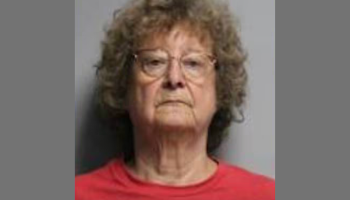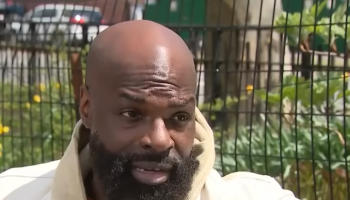ORDER HER BOOK ONLINE HERE
For the first time in five years, Daphne Bell has a Christmas tree.
It has taken her that long to resolve the contradiction between a season full of glad tidings and her sadness over the loss of her mother, her father and her husband, football player Todd Bell.
Until she had worked through her grief, the trappings of Christmas – twinkling lights, festive parties, even sappy TV commercials – were too much for her.
“I wished the holidays away,” said Bell, whose experiences inspired her to write a book on grieving.
“I wanted them to go away.”
The holiday season presents special challenges to people mourning the loss of a loved one. Nothing is the same – not the holiday meal, not the gift exchange, not even the music.
Certain lines in Have Yourself a Merry Little Christmas (“Here we are, as in olden days”) tear at Eric Shively, who lost his wife of 33 years, Louise, to cancer this year.
“I hear that, and I just kind of break up,” said Shively, 61, of Worthington.
He joined a support-group meeting for widows and widowers this week in Delaware. Most in attendance had lost spouses or partners this year. And several said they were not looking forward to Christmas.
Yet the holidays come.
Acknowledging the changed circumstances, grief counselors say, is a good way to begin coping with them.
“It’s important to recognize that the holidays will be different this year,” said Andrea Graves, manager of bereavement programs at HomeReach Hospice at OhioHealth. “You are going through grief, and it’s important to honor that.
“Don’t expect you’ll be able to do things the same as you always have.”
Jack Warner, 80, is downsizing the decorations, but his children and grandchildren will still gather at his home in Delaware for Christmas.
His wife of 58 years, Micki, died of cancer in February. Christmas without her is heartbreaking, he said, but it would be worse were the family not getting together.
“My family is everything in the world to me.”
Warner will let his four grandchildren – ages 5 to 19 – choose some of his wife’s possessions to keep. It’s one way of keeping her memory alive.
Remembering the dead can help survivors cope with conflicting feelings at the holidays, grief counselors say. It acknowledges the loss, which can be reassuring to those in grief.
“There is not a second that goes by that I don’t think about the loss of my son,” said Linda Wuestenberg, whose 33-year-old son, Steven Burge, died in a traffic accident in 2007. “When a friend mentions his name, it makes me feel glad and happy.”
For Daphne Bell, the past five years have been marked by loss: First, in March 2005, her husband – a former football player for Ohio State and the Chicago Bears – died at 46 of a massive heart attack. Less than a month later, her father died. And this Christmas will be the first without her mother, who died in January.
Bell, who tells the story of these losses and the earlier deaths of two sisters in her book The Pain Didn’t Kill Me, said her biggest mistake in grieving was isolating herself from friends and family. She became deeply depressed – until, finally, she sought help.
“Grief counseling saved my life,” she said. “They literally teach you how to grieve.”
The guidance helped her reconnect with her Christian faith, which gave her a renewed sense of hope. Keeping a journal also helped.
Grieving is individual, with no set timetable, and no one way of going about it, Bell said.
Eventually, though, the healing occurs. “You’re broken, but you will rise again.”
This year, when two friends insisted that she accept their gift of a Christmas tree, Bell agreed.
“When they left, I wept like a baby. Because, first of all, I was so thankful for friends like that. And second of all, I was appreciative that I was able to receive it and embrace it.”
(Courtesy: The Columbus Dispatch)















